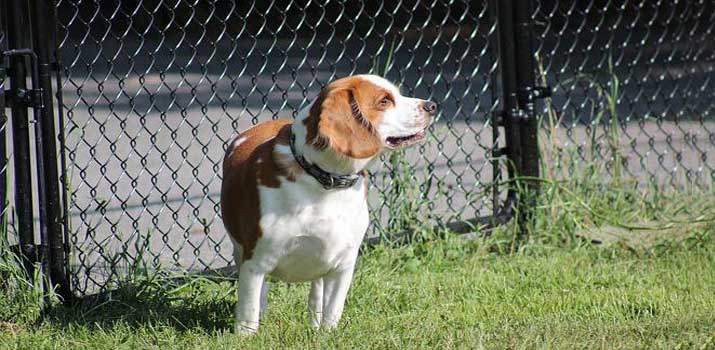
In the last couple of decades, the issue of animal testing has been at the forefront of everything from cosmetics to pharmaceuticals.
People are more aware of the effects of animal testing, and the widescale protests of yesteryear helped to change the way manufacturers do things.
As a whole, animal testing has declined significantly as more companies look for more ethical alternatives.
All that said, it still exists. Many labs turn to dogs as test subjects. The animal’s DNA is relatively close to humans, making them a suitable stand-in for humans.
One breed, in particular, is the go-to for testing facilities. Beagles are used in labs more than any other breed in the world.
But why?
Why Beagles are Used in Labs
Ultimately, the thing dog-lovers enjoy most about this lovable breed is what makes them the prime testing subject.
Beyond similar DNAs, Beagles are appropriately sized to accommodate what goes on in a lab.
They’re not super small like Chihuahuas or Pomeranians, so the results are more accurate and reliable. However, they’re not so massive that lab workers can’t maneuver them or have trouble keeping them contained.
They’re medium-sized dogs that scientists and researchers have no problem performing experiments on.
But that’s not all; it gets far worse than just physical favorability. Scientists also take full advantage of their demeanor.
Beagles are some of the most trusting and loyal dogs around.
They want nothing more than to serve their humans through hunting. These dogs are submissive, non-aggressive, and generally even-tempered. It’s the hallmarks of a perfect family dog!
Unfortunately, it’s also what makes them ideal for experiments. Unlike more strong-willed dogs, Beagles aren’t going to fight back. They’re easy targets that companies can exploit.
Beagles aren’t new to the world of medical testing. They’ve been subjects for over a century.
Many labs prefer these dogs, and they’ll continue to use them because of standardization. It’s easier to use one type of dog than to use multiple and get mixed results.
How Do Labs Get Beagles?
Here’s something pretty hard to stomach.
When most people think of Beagles, they imagine these fun-loving hunting hounds growing up in rural areas and raised by reputable breeders.
You’d have to be a dog-lover to breed Beagles, right?
Sadly, some breeders raise these dogs exclusively for lab testing.
Laws have changed significantly since we’ve become more aware of animal testing. In the past, labs could pretty much get dogs from anywhere.
Now, things are more limited. Most labs get their Beagles from what are known as “Class A Dealers.” These dealers are breeding facilities that raise dogs for animal testing and nothing else.
Most Class A dealers sell Beagles to labs once they reach the age of one-year-old.
Class B dealers used to be common, too.
These dealers get funding from the government and medical universities. But as you can imagine, taxpayer funding for animal testing wasn’t very popular.
As a result, the National Institute of Health banned government funding for Class B dealers.
Now, most labs get their Beagles from dedicated Class A dealers.
How Do Labs Use Beagles?
Beagles undergo a wide variety of tests and experiments.
In many cases, scientists use them to research the effects of certain drugs, chemicals, or procedures before they’re made available to humans.
Beagles are often the subject of preliminary testing and experimentation before moving on to clinical trials.
The efficacy of animal testing is still up for debate, and an estimated 92 percent of tests fail once they get to human testing despite the success researchers see on Beagles.

Here are just a few ways labs use Beagles.
3 Field Examples That Uses Beagles to Experiment On
Toxicology Tests
Many chemical-based products go through some form of animal testing before hitting the market. The goal is to ensure that exposure isn’t lethal to humans.
Beagles are on the front lines here, and many dogs sacrifice their lives to make all those products lining store shelves possible.
The type of toxicology tests they undergo vary dramatically from one substance to the next.
Typically, researchers will apply core ingredients onto a shaved piece of skin. If you’ve ever done an allergy test, it’s a similar concept.
Alternatively, researchers might put the chemicals in the dog’s food and water to test the effects of ingestion.
These chemicals go on to be part of household cleaning products, cosmetic goods, and more.
Related read: 14 Bugs / Insects your Dog Should Never Eat
Human Drugs
Drug testing is a big deal. Medications can come with many benefits, and pharmaceutical companies want to make sure they understand what drugs do before making them available.
The United States has strict compliance laws, and new drugs have to go through extensive testing and trials before they can hit the market.
Once again, Beagles make many modern medicines possible. Researchers will forcibly feed drugs to dogs or inject them into their bodies. Then, they record the adverse effects.
Medical Procedures
Beagles are also utilized for medical experimentation.
Many dogs go to what the testing industry calls “terminal surgery labs.” Dogs undergo invasive surgeries that negatively impact their health and well-being.
Generally, dogs are euthanized shortly after recovering from the experimental procedure.
Beagles have been the testing subjects for a wide range of procedures. Some examples include kidney transplants, pacemaker implants, and more.
Understanding the Sacrifice of the Beagle Breed
The topic of animal testing will always draw controversy. Some view it as a necessary evil, while others see it as nothing more than a fruitless atrocity.
There’s no denying that Beagles don’t deserve the negative effects of being animal test subjects.
Most people don’t even realize that Beagles are used for these purposes. The good news is that some dogs do survive and go to shelters.
They still have the remnants of psychological trauma and need all the love they can get.
If you see a Beagle in a rescue shelter and learn about its testing past, consider adopting it! These dogs deserve love, and you could be the one that provides their happy ending after a life of suffering.
Also Read: 7 Best Puppy Foods for Beagles

